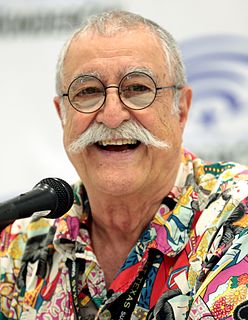A Quote by Tess Gerritsen
I'm trained in science, believe in logic, and like to think there's an explanation for everything. And I'm truly not really at ease with other people.
Related Quotes
Sir Hiram Maxim is a genuine and typical example of the man of science, romantic, excitable, full of real but somewhat obvious poetry, a little hazy in logic and philosophy, but full of hearty enthusiasm and an honorable simplicity. He is, as he expresses it, "an old and trained engineer," and is like all of the old and trained engineers I have happened to come across, a man who indemnifies himself for the superhuman or inhuman concentration required for physical science by a vague and dangerous romanticism about everything else.
Narcissism, like the other personality disorders, is a condition that's known as ego-syntonic. In other words, the paranoid person really does believe that people are after him, and the narcissist really does believe that he or she is better than or more entitled than other people, and truly doesn't see why that's not the case.
My father was very political. But he told me, "Be very careful when you get into politics, because there's no black and white. There's an in-between in everything. So look at that side, don't take one point, because then you are negating half of the other people. Try to find the logic on a problem, something that you believe, and take the position that you believe, but be very careful about it." So I was very well trained in that aspect.
If you really think everything in your life, everything that you benefit from comes from socially aware, like-minded, good-hearted people, then you're out of your mind. If you want only those people to have good jobs, we would have to learn how to adjust very quickly without those people. Maybe I'm cynical, but I truly believe that.
It turned out I was pretty good in science. But again, because of the small budget, in science class we couldn't afford to do experiments in order to prove theories. We just believed everything. Actually, I think that class was called Religion. Religion class was always an easy class. All you had to do was suspend the logic and reasoning you were being taught in all the other classes.
Desperation precludes reflection. That is one of the reasons why smart people can get involved in very obviously unworkable relationships. Like addiction, that deep, Imago attachment is more powerful than logic, and in fact disables logic. So, any explanation or analysis or reflection on such a feeling is already many steps removed from the experience.
I don't view it as mystic. I believe that God is our father. He created us. He is powerful because he knows everything. Therefore everything I learn that is true makes me more like my father in heaven. When science seems to contradict religion, then one, the other, or both are wrong, or incomplete. Truth is not incompatible with itself. When I benefit from science it's actually not correct for me to say it resulted from science and not from God. They work in concert.
I really can't tell other people how to live their life or how to approach different things. What I can tell them - and I truly believe this, I don't think it's being naïve and I don't think it's being in denial - I really believe that the way you think influences the way you feel, and the way you feel influences the way you act.
People knew there were two ways of coming at truth. One was science, or what the Greeks called Logos, reason, logic. And that was essential that the discourse of science or logic related directed to the external world. The other was mythos, what the Greeks called myth, which didn't mean a fantasy story, but it was a narrative associated with ritual and ethical practice but it helped us to address problems for which there were no easy answers, like mortality, cruelty, the sorrow that overtakes us all that's part of the human condition. And these two were not in opposition, we needed both.
I don't believe in marriage. I think at worst it's a hostile political act, a way for small-minded men to keep women in the house and out of the way, wrapped up in the guise of tradition and conservative religious nonsense. At best, it's a happy delusion - these two people who truly love each other and have no idea how truly miserable they're about to make each other. But, but, when two people know that, and they decide with eyes wide open to face each other and get married anyway, then I don't think it's conservative or delusional. I think it's radical and courageous and very romantic.
Among all the liberal arts, the first is logic, and specifically that part of logic which gives initial instruction about words. ... [T]he word "logic" has a broad meaning, and is not restricted exclusively to the science of argumentative reasoning. [It includes] Grammar [which] is "the science of speaking and writing correctly-the starting point of all liberal studies."







































